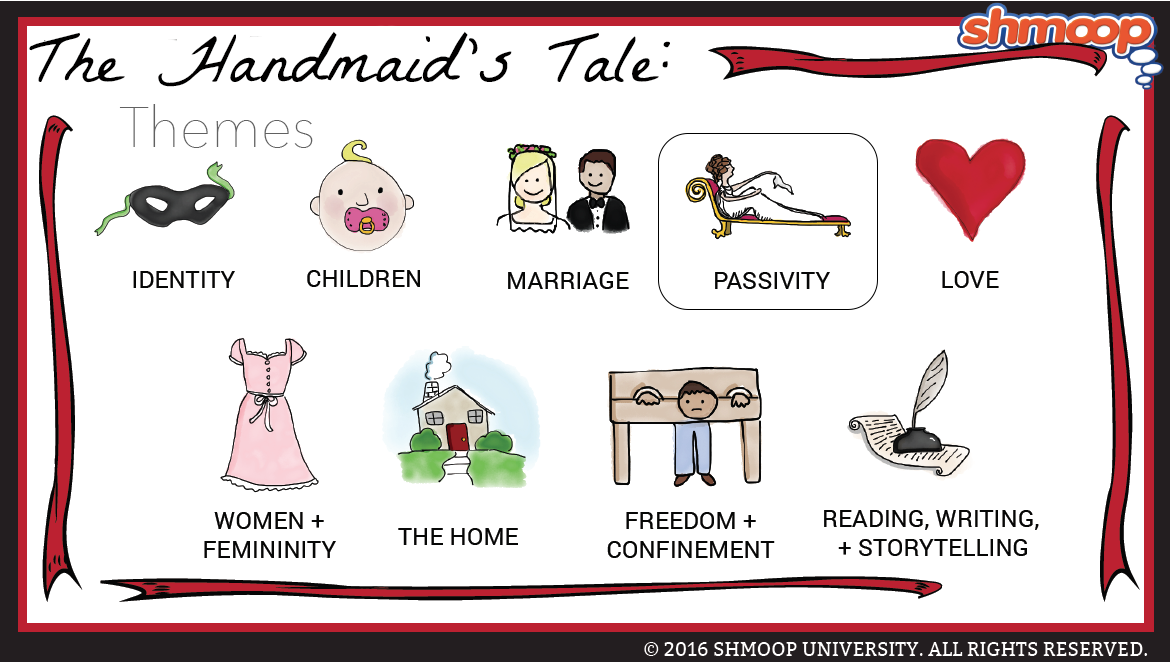 (Click the themes infographic to download.)
(Click the themes infographic to download.)
In a sense, everyone is required to be passive in The Handmaid's Tale, but women have it worse because they no longer have any financial or social power. (The Aunts at the Center are an exception, but even they are subject to limits.)
In order to survive in the Republic of Gilead, characters have to be blank slates. They have to be willing to take on new names and go where they're told. They can't complain if their children are taken from them or cry over their loved ones' sad fates. Acting out—even by doing something as seemingly harmless as reading—results in brutal punishment or even death.
Questions About Passivity
- Who is the most passive character in this text? What makes you think so?
- Is female passivity supposed to be attractive to male characters? Is it?
- How does boredom work as an element of passivity in this book?
- Is the narrator passive? Why or why not?
Chew on This
The narrator is able to live vicariously through Moira, which allows the narrator to tolerate her life and even encourages her own passivity.
Acting passive is the only way to achieve freedom or temporary escape from circumstances in this novel.